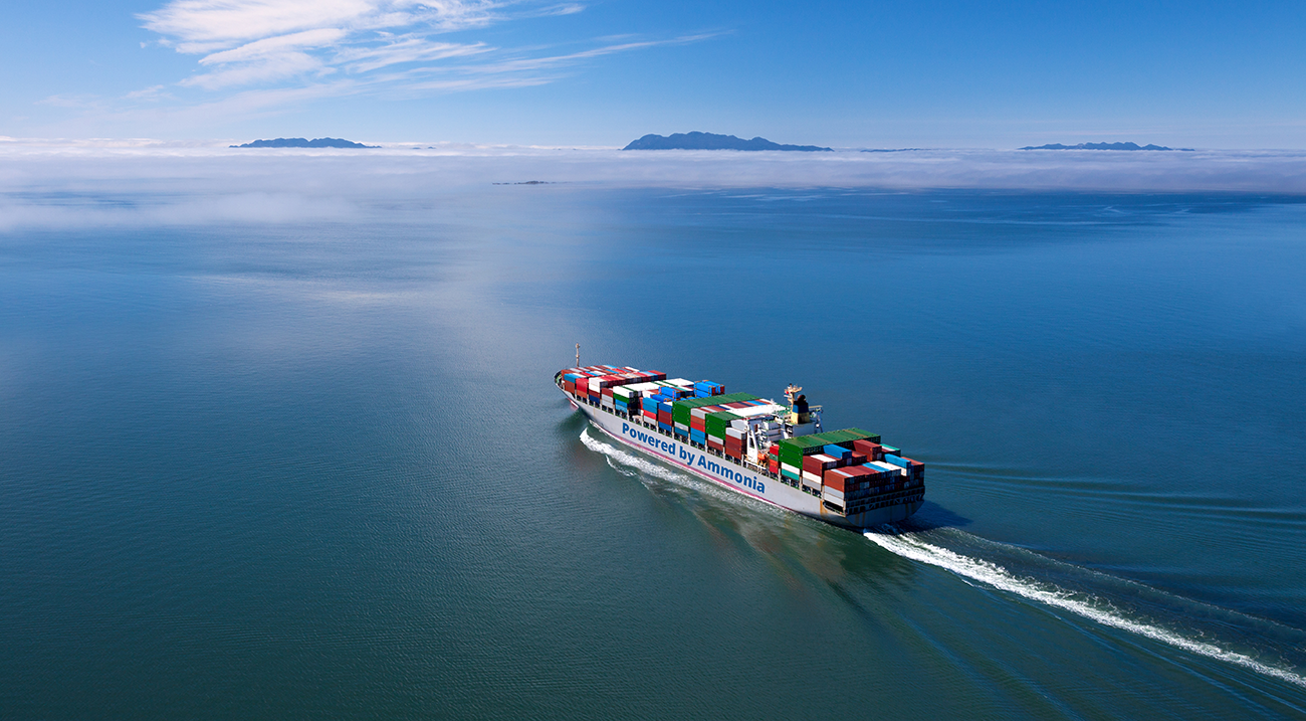
What We Do
At our core, CF Industries is a producer of ammonia. For decades, we have used the Haber-Bosch process to fix atmospheric nitrogen with hydrogen from natural gas to produce anhydrous ammonia. Up to this point, we have made a business of selling ammonia, and other derivative fertilizer products such as urea and UAN, for the nitrogen value of the molecule.
Today, we are focused on building on this legacy, committed to decarbonizing and aggressively scaling our ability to produce green and blue ammonia, positioning CF Industries at the forefront of clean hydrogen and ammonia supply.

Our People
Across our locations in the United States, Canada and the United Kingdom, our employees are focused on safe and reliable operations, environmental stewardship, and disciplined capital and corporate management.
Their commitment and dedication to Do It Right! has helped make CF Industries one of the safest and most reliable operators in our industry. In 2020, we achieved our lowest year-end recordable incident rate ever, ending the year with only four recordable injuries and zero lost-time injuries across our network.
Find out more about what makes CF Industries a great place to work here.

Hydrogen Has Emerged as a Leading Clean Energy Source to Help the World Achieve Net Zero Carbon Emissions by 2050
CF is the world’s largest producer of ammonia and is uniquely positioned, with an unparalleled asset base and technical knowledge, to serve this anticipated demand
Clean Energy Economy Opportunity
We are taking significant steps to leverage our leading asset base to support a global hydrogen and clean fuel economy, which is expected to grow significantly over the next decade, through the production of green and low-carbon ammonia. Industry experts project hydrogen will meet approximately 20% of the world’s energy need by 2050, up from less than 1% today. Ammonia is a highly efficient transport and storage mechanism for hydrogen as well as a fuel in its own right.
As the world’s largest ammonia producer, CF Industries’ current asset base and technical expertise are well-situated to meet the anticipated demand for hydrogen and ammonia from green and low-carbon sources. Our commitment to decarbonize the world’s largest ammonia production network positions CF Industries at the forefront of clean hydrogen supply.
Read more about our commitment to decarbonize our ammonia production network and the clean energy economy opportunity here.

Supplying an Essential Nutrient to Feed the World
Since our founding, CF Industries has supplied its customers with nitrogen, primarily for agricultural use. Crops need nitrogen-rich soils to grow. And people and livestock around the world depend on crops for food. Simply put, feeding the world is impossible without nitrogen.
Fertilizer use increases crop yields per acre, meaning more food can be grown on less land. That, in turn, reduces the need to convert carbon-sequestering forestland into farmland. Increasing crop yields thereby works to reduce greenhouse gas emissions by limiting deforestation.
If farmers used no fertilizer, approximately 30 percent more farmland would be needed to grow food. The resulting deforestation would cause an increase of nearly five gigatonnes of carbon dioxide equivalent emissions.
CF’s nitrogen based products benefit more than just farmers. Our products also help reduce emissions from power plants and combustion engines in diesel trucks.
Diesel exhaust fluid (DEF) is made from urea liquor mixed with de-ionized water. DEF reduces particulate matter and nitrous oxide emissions to near zero levels through selective catalytic reduction (SCR) technology.
Learn more about our products here.

Committed to a Sustainable Future
CF has an important role to play in solving some of the world's greatest challenges, such as feeding a growing global population and protecting the environment. That's why sustainability is an inherent part of how we run our business and part of our commitment to the communities where we live and work.
In line with our commitment to the clean energy economy, we have published comprehensive environmental, social and governance goals, including a 25% reduction in CO2e emissions intensity by 2030 and net-zero carbon emissions by 2050. Additionally, executive compensation is tied directly to ESG goals.
See all our ESG goals here.
